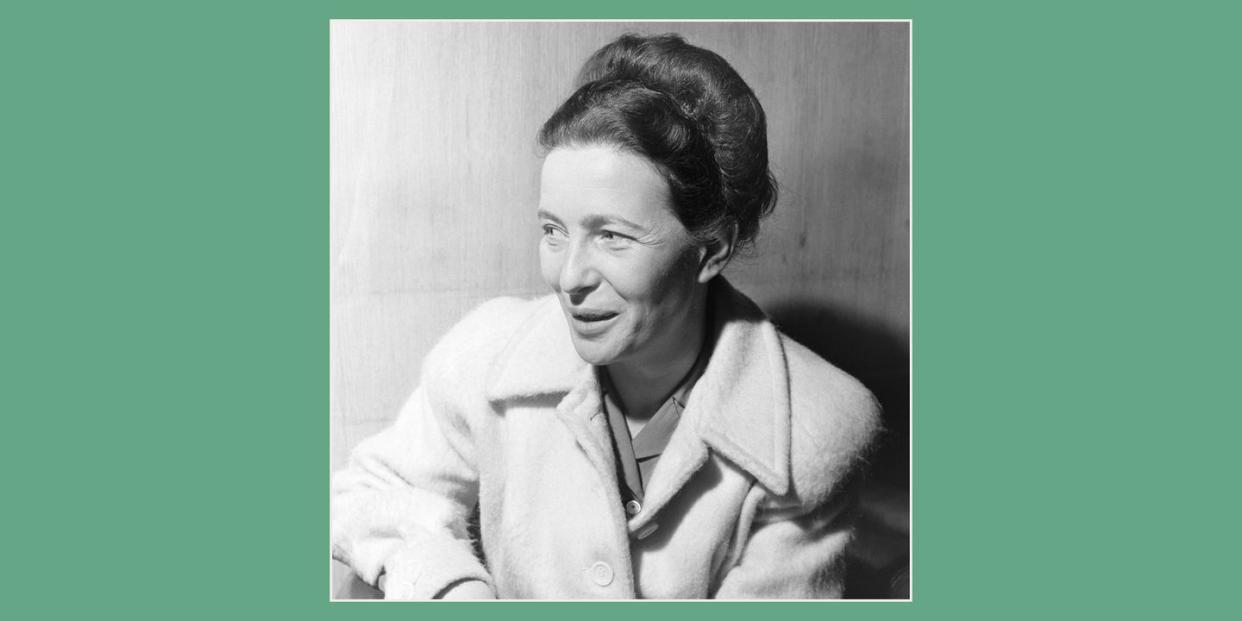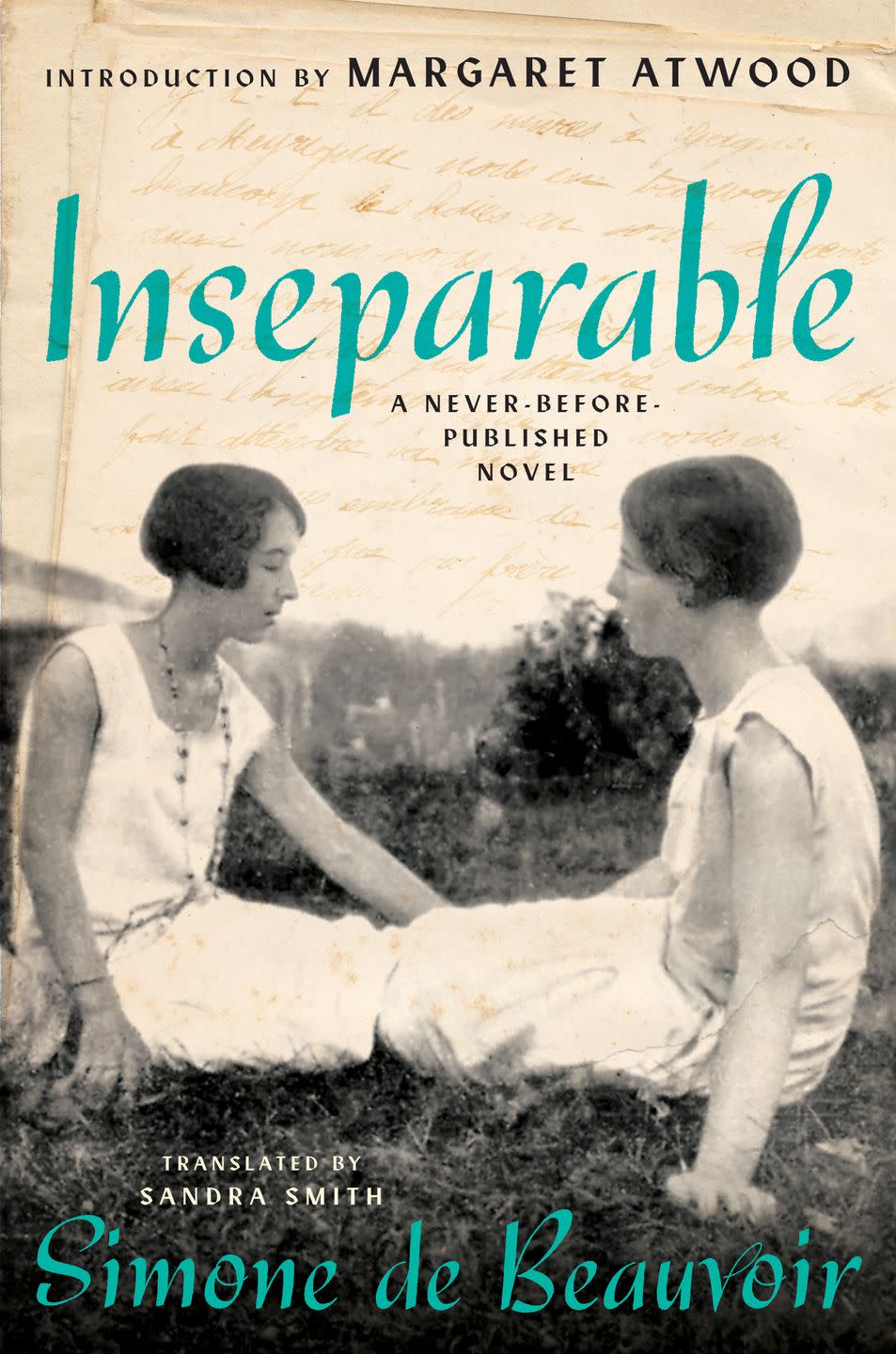The Cover of Simone de Beauvoir's Long Lost Novel "Inseparable," Revealed

- Oops!Something went wrong.Please try again later.
In 1954, five years after her groundbreaking feminist epic The Second Sex was published, Simone de Beauvoir wrote a novel. But that novel—which in French was titled Les Inseparables—was never published in de Beauvoir's lifetime. The novel recounts what many believe was de Beauvoir's single most influential experience: her friendship with Zaza (named Andreé in the novel). On September 7, some 35 years after de Beauvoir's death, Inseparable will finally be published.
The cover of the book, which Oprah Daily is revealing exclusively, is a photograph of de Beauvoir and Zaza, who died suddenly of encephalitis at age 20, and left de Beauvoir bereft, depressed, and without her closest friend. De Beauvoir wrote of her in various memoirs and other non-fiction works. But she chose not to release the novel, mainly because her partner, the influential existentialist Jean-Paul Sartre, dismissed the work as "inconsequential," causing de Beauvoir to conclude that "it seemed to have no inner necessity" and would fail "to hold the reader's interest."

Margaret Atwood, who was sent the manuscript of Inseparable and found it remarkable, has written the book's foreword. She contrasts her coming-of-age in backwoods Canada to de Beauvoir's upper-crust Parisian roots, and suggests that The Second Sex was an act of rebellion against the French feminist's "corseted" background, which required strict adherence to the rules of polite society. It was Zaza, Atwood observes, who may have been the one to have nurtured her friend's intellectual ambitions and encouraged her to break free of convention. Without Zaza, she posits, there may never have been The Second Sex.
Jean-Paul Sartre felt his partner's work should focus on the serious and the political, and Inseparable, being a novel about female friendship, didn't fit that criteria, in his view. But in her will, de Beauvoir left it to her daughter, Sylvie, to determine whether the novel should one day be published. She's decided that it should. In the foreword, Atwood writes: "Well, Dear Reader, Mr. 'Hell-is-other-people' Sartre was wrong."
The novel is gorgeously written, intelligent, passionate, and in many ways foreshadows such contemporary works as Elena Ferrante's My Brilliant Friend. In the United States the book was scooped up by Ecco's then-publisher, Daniel Halpern. Its editor, Gabriella Doob, told Oprah Daily that because neither she nor Halpern read French, they asked assistant editor Norma Barksdale—who did—to read and assess the manuscript for them. She was wowed, and the next day, Ecco acquired the book. It's since been translated into English.
Atwood concludes the foreword with this thought: "how many versions of Zazas are living on the earth right now—bright, talented, capable women, some oppressed by the laws of their nations, others through poverty or discrimination within supposedly more gender-equal countries?"
Take that, Jean-Paul Sartre.
You Might Also Like

